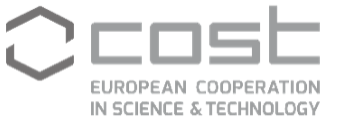WG5: Dissemination, training and education (M1 to M48)
WG5 activities will be focused on transfer of knowledge from research and development results to stakeholder’s skills. Dissemination, training and education are key elements to achieve this transfer and foster a large-scale implementation of EGS. It includes (i) making available all the existing data regarding EGS, (ii) publishing guidelines, producing decision tools and (iii) creating teaching units for next generation and current workforce.
The objectives of WG5, leading to the tasks described below, are:
- Provide an easy visualisation of existing data on EGS;
- Produce consistent decision-making tools;
- Transfer knowledge to the next generation and to the current workforce
In collaboration with T2-1 and using D2-1, the list of constructed EGS will be keyed in a database indicating their main characteristics, their implementation and their performances. The data has to be structured in order to maximise meaningfulness, maintenance, accessibility and intellectual property management. The database will be available on Month 18 and the data collected from WG2, WG3 and WG4 will complete it through the whole action. To ensure the wide dissemination of FOLIAGE works, a dedicated website will be implemented at the beginning of the project with monthly updates. It will display the database.
In addition to the scientific papers published along with the COST Action, it is necessary to produce guidelines giving useful information to all the stakeholders as stated above in 3.2.2. In order to help the understanding and dissemination of the guidelines as well as their practical implementation, a software will be produced to illustrate the principles of the guidelines and constitute a decision support tool for all stakeholders. The main difficulty is to create a viable and useful tool and its full achievement will require the success in Green Deal and/or MSCA application. The COST Action will also allow leveraging funding from different national research agencies.
To ensure a good knowledge transfer to all the stakeholders, it is essential to set up teaching units for the next generation of users and builders as well as for the current generation. All the teaching units will be developed through a strong interaction with all WGs. They will be tested within the universities and institutes present in the consortium. A summer school organised in Month 12, targeting young researchers and practitioners will be the first occasion to test teaching units and the outputs of FOLIAGE will be added progressively in the contents. Master training will be developed for wide distribution and target students in Civil Engineering, Architecture, Energy, and Urban planning. To address the current lack of skills in the workforce, a vocational training will be developed and aimed at site operatives, construction professionals and local authorities’ employees.
Deliverables WG5
- D5.1 - Action website ( 3 month )
- D5.2 - Database ( 18,48 month )
- D5.3 - Decision support software ( 42 month )
- D5.4 - Guidelines for the large-scale implementation of EGS ( 48 month )
- D5.5 - Teaching units ( 12,24,36 month )
- D5.6 - Final Conference ( 48 month )


